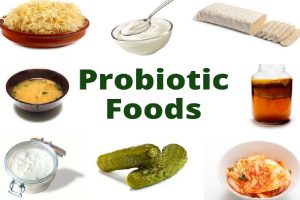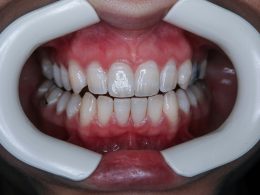In the quest for better health and well-being, probiotics have emerged as powerful allies. These live microorganisms, often referred to as “good bacteria,” offer a multitude of health benefits, spanning from alleviating digestive issues to reducing inflammation and promoting overall well-being. In this article, we will explore the specific health benefits of probiotics, uncovering how they can be a cornerstone of wellness and vitality from within.
The Dynamic World of Probiotics
Before we delve into the health benefits of probiotics, it’s crucial to understand what these microorganisms are and where they can be found. Probiotics are live bacteria and yeasts that are beneficial for our health, particularly our digestive system. They exist naturally in our bodies and can also be found in certain foods and supplements.
Common sources of probiotics include:
- Yogurt: This dairy product is a well-known source of probiotics, featuring strains like Lactobacillus bulgaricus and Streptococcus thermophilus.
- Kefir: A fermented milk drink, kefir offers a rich variety of probiotic strains, including Lactobacillus acidophilus and Saccharomyces cerevisiae.
- Sauerkraut: Fermented cabbage, like sauerkraut, contains strains such as Lactobacillus plantarum and Leuconostoc mesenteroides.
- Kimchi: A spicy Korean dish made from fermented vegetables, kimchi offers strains like Lactobacillus kimchii and Pediococcus pentosaceus.
https://www.inbusinessworld.com/wp-content/uploads/2021/07/probiotics.jpg - Miso: A traditional Japanese seasoning made from fermented soybeans, miso features Bacillus subtilis.
- Fermented Pickles: These crunchy snacks contain various Lactobacillus species.
Now, let’s explore the specific health benefits of incorporating probiotics into your diet.
Alleviating Digestive Issues
One of the most well-known health benefits of probiotics is their ability to alleviate digestive issues. Probiotics help maintain a balanced gut microbiome, promoting the growth of beneficial bacteria. This can lead to improvements in various digestive problems, including:
- Bloating: Probiotics can help reduce gas production, alleviating that uncomfortable feeling of bloating.
- Diarrhea: Certain strains of probiotics are effective in preventing and treating diarrhea, particularly antibiotic-associated diarrhea.
- Constipation: Probiotics may aid in promoting regular bowel movements by improving gut motility.
- Irritable Bowel Syndrome (IBS): Some individuals with IBS have reported symptom relief through probiotic supplementation.
- Inflammatory Bowel Disease (IBD): Probiotics have shown promise in managing symptoms of IBD, such as Crohn’s disease and ulcerative colitis.
Reducing Inflammation
Inflammation is a common factor in many chronic diseases, and the gut plays a pivotal role in this process. A healthy gut microbiome, nourished by probiotics, can help reduce inflammation throughout the body. Inflammatory markers like C-reactive protein (CRP) and various cytokines may decrease with regular probiotic consumption.
Boosting the Immune System
A substantial portion of the immune system resides in the gut. Probiotics can help enhance the immune response by promoting the production of antibodies and activating immune cells. This heightened immune activity not only protects against harmful pathogens but may also reduce the risk of infections.
Mood Regulation
The gut-brain connection is a topic of growing interest in the field of health and wellness. Emerging research suggests that gut health and mental well-being are intertwined. The balance of the gut microbiome, influenced by probiotics, can play a role in mood regulation. Some individuals report improvements in mood, reduced symptoms of anxiety, and even alleviation of depression through probiotic supplementation.
Cardiovascular Health
Probiotics may positively influence cardiovascular health by helping to regulate blood pressure and reduce cholesterol levels. Some probiotic strains can produce compounds that lower blood pressure, such as peptides that inhibit the angiotensin-converting enzyme (ACE), a key player in blood pressure regulation.
Weight Management
A balanced gut microbiome, supported by probiotics, may aid in weight management. Some studies have shown that individuals who take probiotics experience reduced body weight and fat mass.
Supporting Oral Health
Probiotics can also play a role in supporting oral health by reducing harmful bacteria in the mouth. This can help prevent dental issues like cavities and gum disease.
Incorporating Probiotics into Your Diet
To make the most of the health benefits of probiotics, consider these dietary tips:
- Include yogurt with live cultures, kefir, sauerkraut, and kimchi in your meals.
- Experiment with recipes that incorporate miso for added flavor and probiotic benefits.
- Snack on fermented pickles for a crunchy and gut-friendly treat.
- Explore probiotic supplements when dietary sources are limited or if you’re looking for specific strains. Consult a healthcare professional for guidance.
https://successiblelife.com/wp-content/uploads/2019/05/Probiotic-Foods.jpeg
In Conclusion: Probiotics as Pillars of Wellness
Probiotics, the “good bacteria” found in various foods and supplements, are not just a health trend; they are pillars of wellness. They offer a wide range of health benefits, from alleviating digestive issues to reducing inflammation and enhancing overall well-being.
Incorporate probiotics into your daily diet, and you’ll discover that nurturing your health from within is not only feasible but also enjoyable. With these beneficial microorganisms, you can embark on a journey to better health, one delicious bite at a time.












